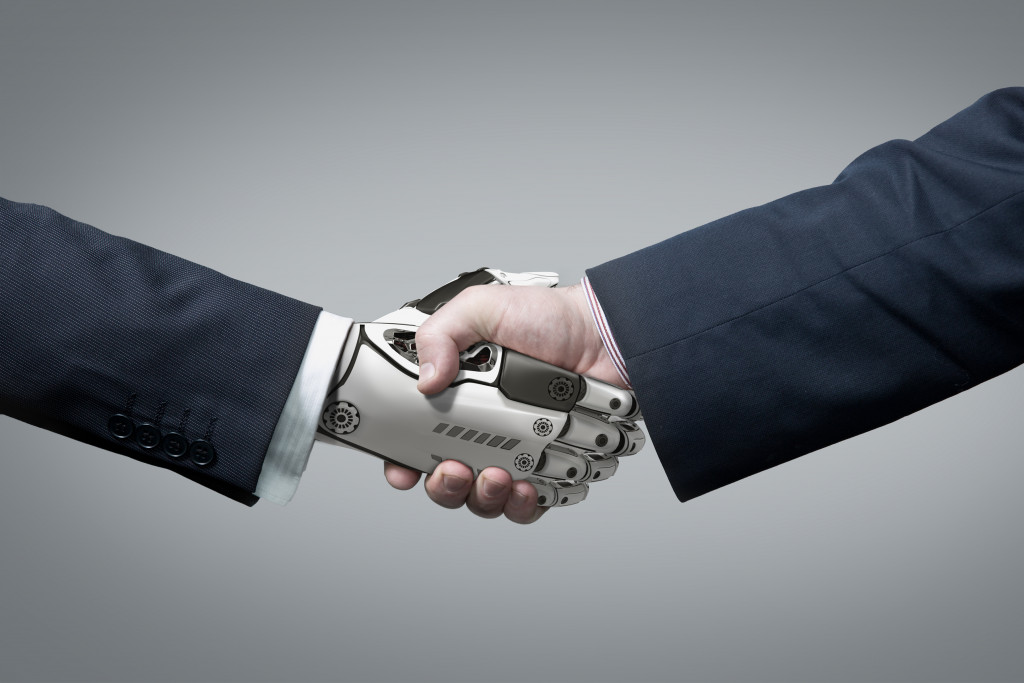- AI is revolutionizing the business landscape worldwide by creating jobs, generating up to $3.9 trillion annually by 2022, and is expected to reach a market value of over $190 billion by 2025.
- Manufacturing uses AI to optimize production processes, increase efficiency and reduce costs.
- Healthcare providers use AI to improve patient outcomes with computer-aided detection systems and personalized treatment plans based on patient characteristics.
- Banks and financial services leverage AI to understand customers better and manage risk by assessing loan applications quickly, detecting fraud early, and minimizing losses.
The revolution of artificial intelligence (AI) in the business landscape has been incredible. Over the past few years, AI has become vital for companies to increase efficiency, reduce costs and maximize profits. From banks and retailers to healthcare providers and airlines, more and more industries are embracing AI-based technologies to make smarter decisions.
According to a study by Deloitte, AI is expected to generate up to $3.9 trillion for businesses worldwide each year. On top of that, experts estimate that the AI market will reach over $190 billion by 2025 – almost double its worth in 2019. AI is also projected to create 2 million jobs worldwide by 2022.
AI technologies have already had an enormous impact on various industries worldwide. For example, in retail, AI tools help businesses better understand customer behavior, leading to improved personalization and targeted marketing campaigns. Here are a few industries that are seeing the most success with AI:
Manufacturing

Manufacturing is one industry that has seen the most benefit from artificial intelligence (AI). AI-powered tools help manufacturers optimize their production processes, increase efficiency and reduce costs. Here are a few ways how AI has improved productivity in the manufacturing industry:
Robotics and Automation
Robotics and automation systems powered by AI can take over extremely tedious tasks previously done manually. This significantly reduces labor costs, eliminates errors, and allows faster production cycles. AI-powered robots can also perform more complex tasks, such as sorting materials or assembling parts, increasing efficiency.
Inspection and Quality Assurance
AI-powered inspection tools allow manufacturers to identify quality issues before they become more significant problems. Machine vision systems powered by AI analyze images of parts on a microscopic level to detect defects, enabling manufacturers to ensure consistent quality control in their production process.
Data Analysis
AI algorithms can analyze large amounts of data quickly and accurately, enabling manufacturers to gain deep insights into various aspects of their operations. This data can be used to identify bottlenecks in production, predict customer demand, and spot trends that may be driving changes in the market. By leveraging this data, manufacturers can make intelligent decisions to improve efficiency.
Predictive Maintenance
Using predictive maintenance enabled by AI, factories can detect machine malfunctions before they happen. By analyzing historical data from previous repairs and real-time readings from sensors on machines, AI can notify operators when a machine needs maintenance so it does not break down unexpectedly during production. This saves time and money by avoiding unexpected downtime due to breakdowns or other malfunctions.
Healthcare

Healthcare is another industry that has greatly benefited from AI technologies. AI-based tools are helping healthcare providers reduce costs, improve patient outcomes and increase efficiency.
AI algorithms can analyze medical images with greater accuracy than humans, resulting in faster and more accurate diagnoses of diseases. For example, Computer-Aided Detection (CAD) systems use AI to detect signs of infections in medical scans such as X-rays or MRI scans. These systems can identify even the slightest abnormalities that may be difficult for human practitioners to detect and improve patient outcomes by catching disorders early.
AI algorithms can also create personalized treatment plans based on a patient’s characteristics and medical history. This allows healthcare providers to offer more tailored treatments that are better suited to each patient’s needs. Additionally, AI algorithms can help healthcare providers optimize their resources by predicting demand for services such as surgeries or specialist appointments.
AI can speed up drug discovery and development by analyzing large amounts of data faster than humans and identifying potential new drugs more quickly and accurately. By automating this process, researchers can save time and money searching for new treatments for various illnesses. However, getting a healthcare AI consultant will be vital to ensure success. When dealing with people’s lives, it will be crucial to get the right advice.
Banking and Financial Services
AI technologies have also significantly impacted the banking and financial services industry. AI-powered tools are helping banks better understand their customers and manage risk more efficiently, improving customer satisfaction while minimizing losses due to fraud or bad investments.
AI algorithms can assess loan applications quickly and accurately, enabling banks to approve loans faster. Additionally, AI tools can detect fraud faster by analyzing large amounts of data more effectively than humans. Banks can use this technology to identify suspicious activities such as credit card fraud earlier and take appropriate action immediately.
Final Thoughts
These are just a few industries that have seen massive success with AI technologies. As more and more companies move towards a digital-first approach, AI is becoming increasingly crucial for businesses to stay competitive in today’s market. So it will be wise to keep track of its progress and use it to make smarter decisions.

